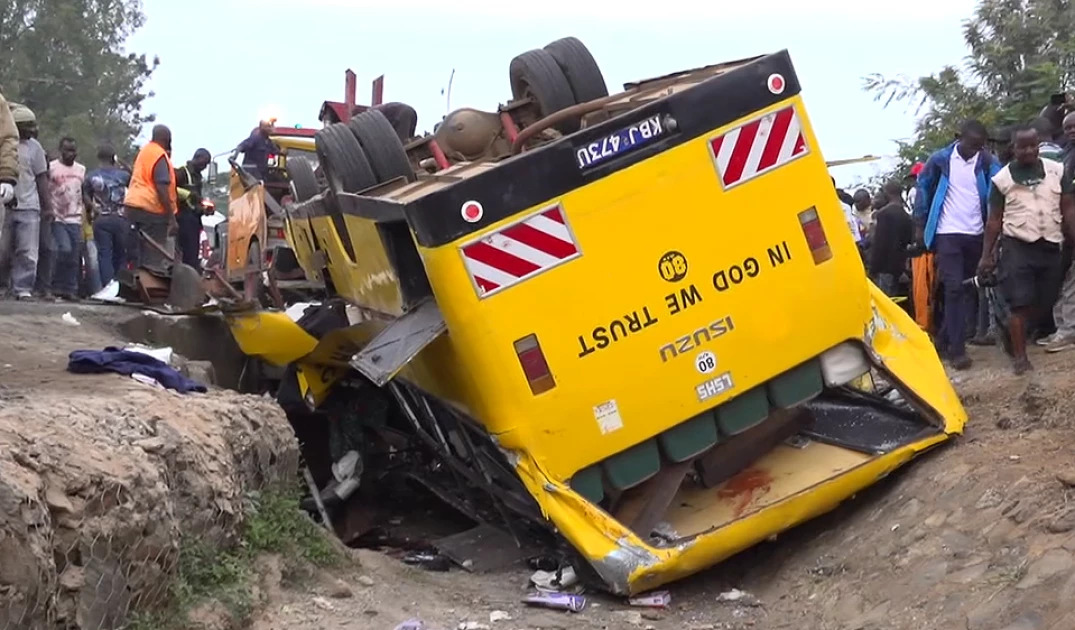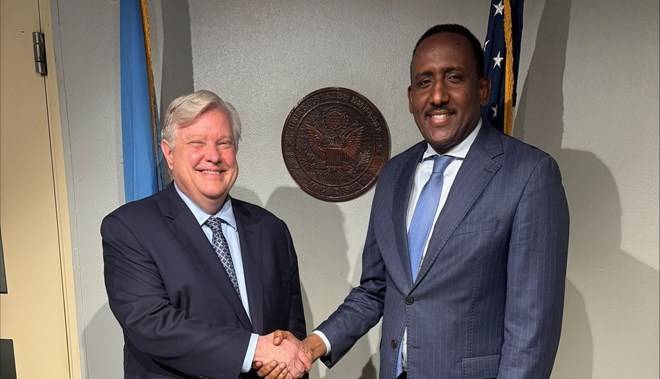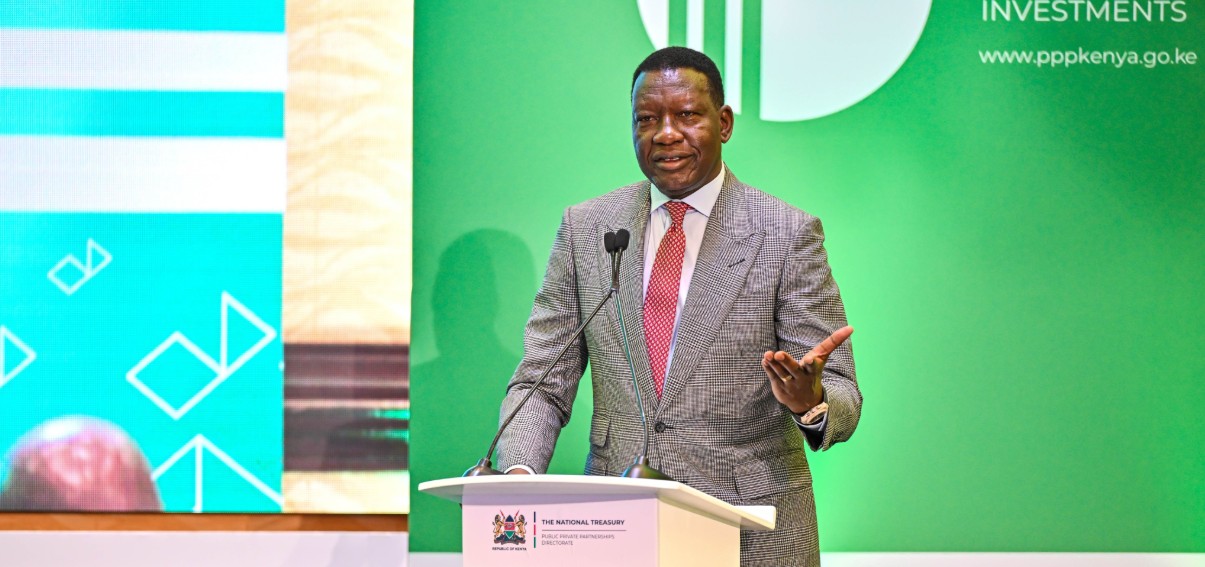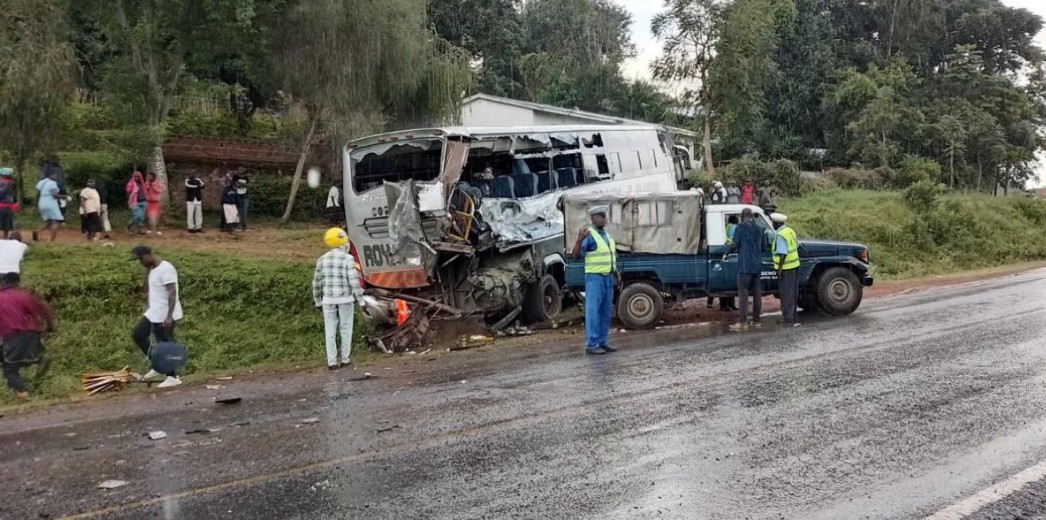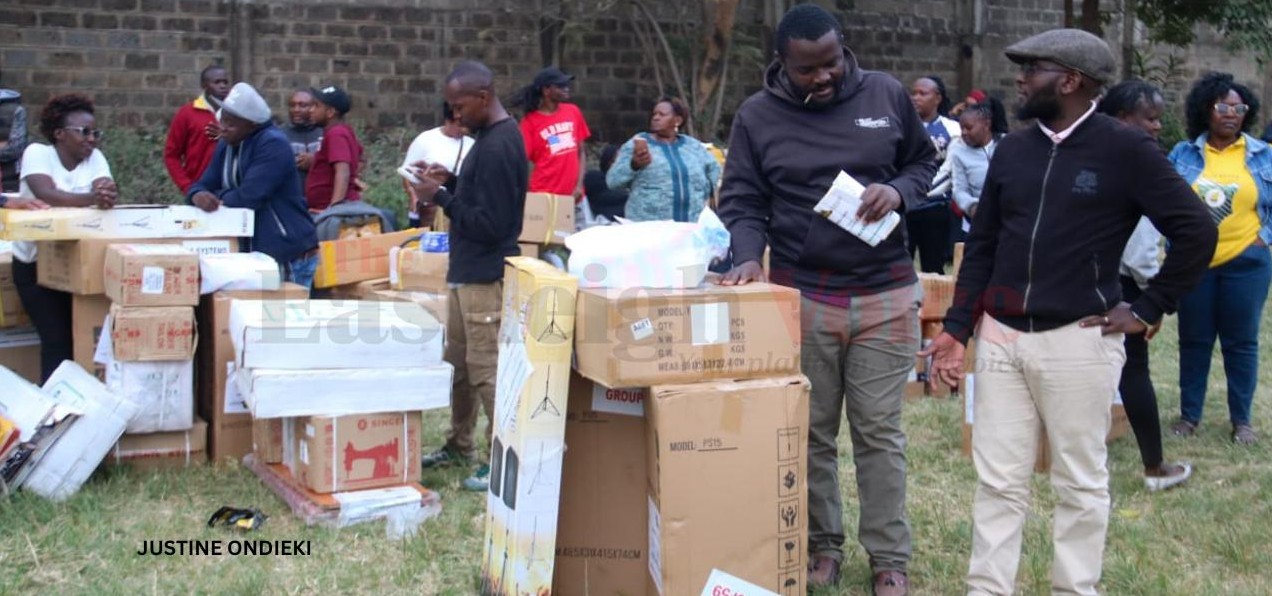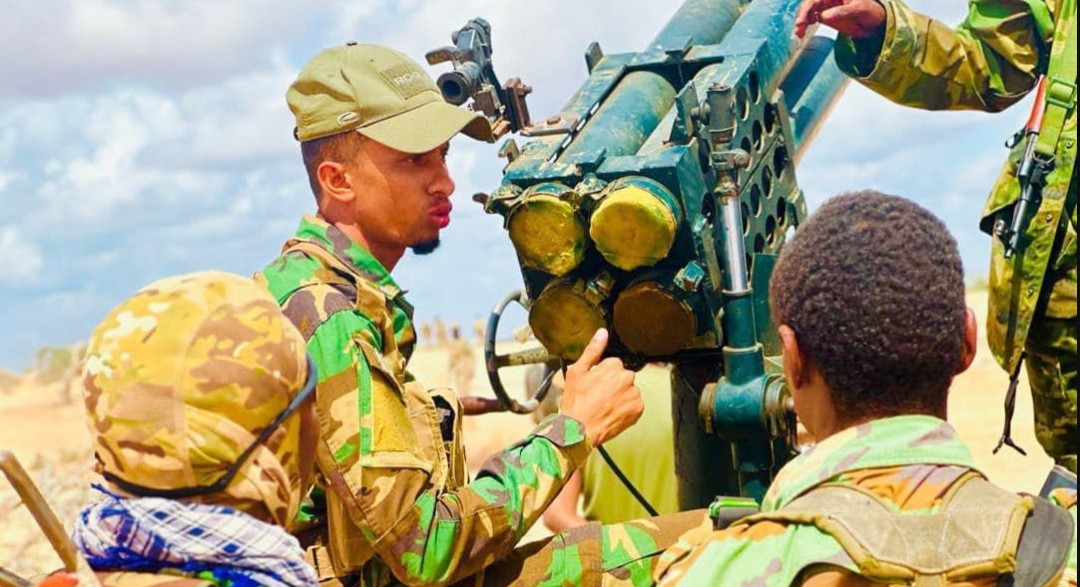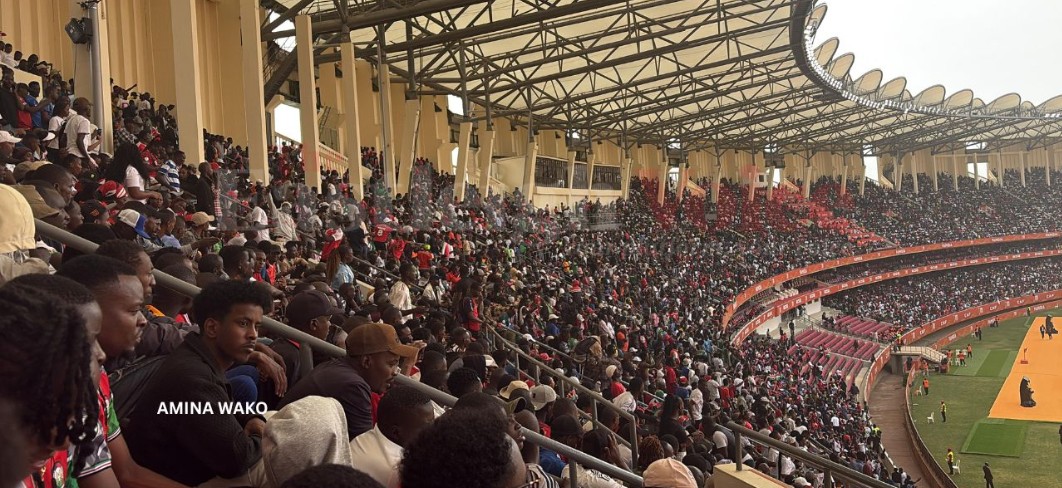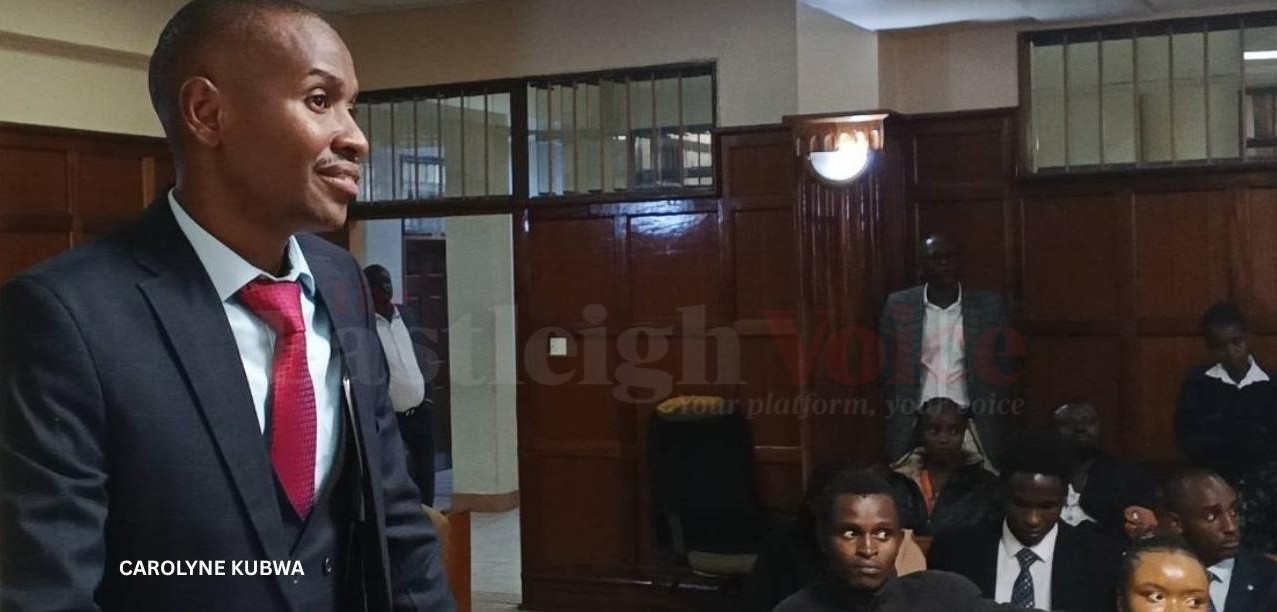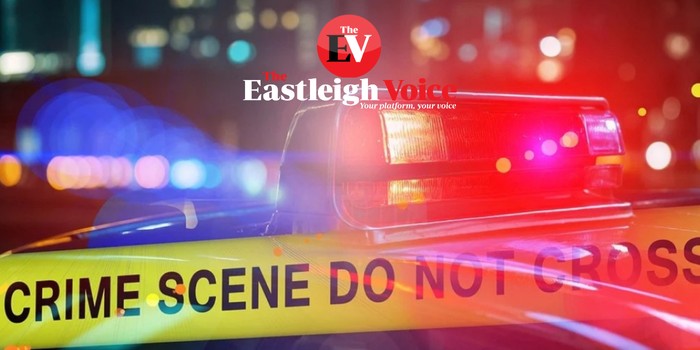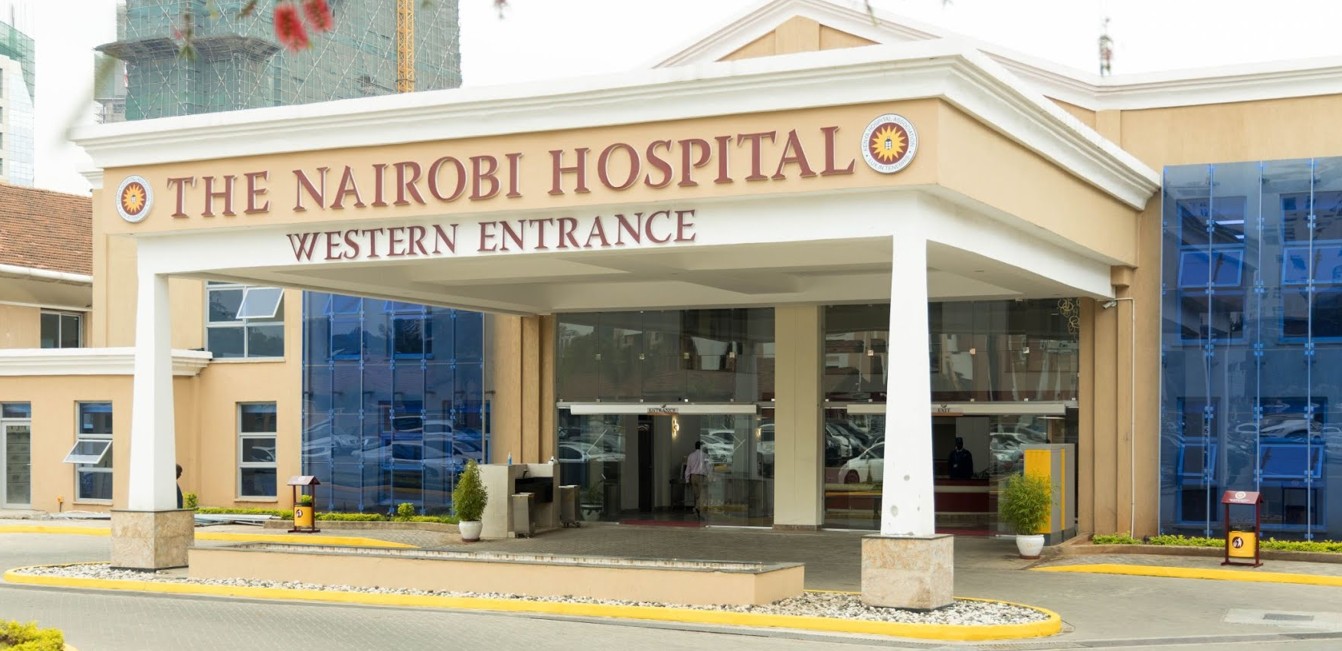Dangerous job without weapons: Security guards' struggles as anti-state demos turn violent

In the thick of anti-state demonstrations are security guards torn between protecting themselves and fighting off criminals, at the risk of suffering serious injuries or losing their lives.
The nationwide protests against President William Ruto's government have resulted in serious consequences including death, alleged forced disappearances and kidnappings, and massive looting by criminals said to be taking advantage of the situation.
In the thick of the turmoil are security guards torn between protecting themselves and fighting off criminals, at the risk of suffering serious injuries or losing their lives.
More To Read
- Private security guards demand government action over abuse, neglect by employers
- Bullet in broad daylight: How cameras, courage and OSINT are unmasking Kenya’s police brutality
- Murkomen under fire for branding protesters as terrorists amid outcry over police brutality
- Raila: I stopped Ruto’s regime from falling under military rule during Gen Z protests
- New digital platform connects private security guards directly with clients
- Mother of teen shot by police in Majengo recounts final moments before his death
Evans Mutonyi, one such security guard in Eastleigh, recalled the events of June 25, when the protests took an extremely violent turn, including the killing of protesters and an invasion of parliament.
"I was on duty when suddenly, a large crowd stormed Eastleigh. I panicked. My first instinct was to lock all doors," he told The Eastleigh Voice in an interview on Wednesday.
Mutonyi explained that the situation unfolded so abruptly that residents and local business owners were locked out of their properties.
"In that moment, I had to make a tough decision. If I had allowed people to take refuge inside the building, I wouldn't have been able to distinguish between thieves and legitimate residents or business owners because of the large crowd. The last thing I wanted was to be trapped inside with looters."
Though many people were unhappy with his actions, he believed his decision was the best under the circumstances.
"It was a difficult choice but I did what I thought was right to protect property," he said.
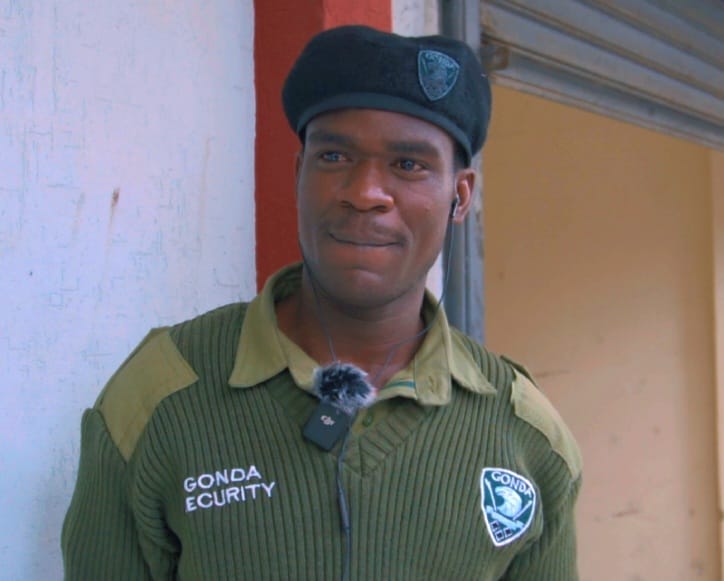 Security guard Evans Mutonyi during an interview with The Eastleigh Voice on July 3, 2024. (Photo: Ahmed Shafat/EV)
Security guard Evans Mutonyi during an interview with The Eastleigh Voice on July 3, 2024. (Photo: Ahmed Shafat/EV)
Leap of faith
Kennedy Odhiambo, another security guard in Eastleigh, took a leap of faith during the same protests and sheltered more than 20 people in the building he was guarding.
"The looters were coming, and tear gas was being fired. People were terrified. I saw women and children running to take refuge in the building I was guarding. I couldn't turn them away. I locked the door with all of us inside," said Odhiambo.
He explained that security guards often face tough decisions in their line of work and are often misunderstood.
"As a guard, you are the first point of contact for both guests and criminals. It takes a lot of insight to distinguish between them, and most of the time, we don't have any weapons to protect ourselves."
During the chaos, Odhiambo remained vigilant, ensuring the safety of the properties, residents, and business owners. His actions reflected a commitment to protecting not only physical assets but also human lives amidst the unrest. However, he noted that in that moment, his humanity took over. If the people he rescued had turned out to be looters or criminals, he is unsure how the events would have unfolded.
In June, the Private Security Regulatory Authority (PSRA) proposed amendments to the Private Security Regulation Act No.13 of 2016 to allow guards to carry firearms under six high-risk circumstances.
The PSRA wants private guards armed in shopping malls, in public spaces characterised by high human traffic, and when handling maritime security, cash in transit, government institutions, critical infrastructure, and institutions with elevated vulnerabilities and security risks.
The PSRA, headed by Fazul Mahamed, said that its proposals were part of a security reform agenda aimed at empowering and sufficiently equipping private guards. it cited recent killings of guards on duty during attacks by armed criminals.
In their daily roles and routine performance of their duties, private security personnel (security guards) form the initial barrier and frontline defence against criminal threats, including acts of terrorism, robbery and armed aggression. However, the absence of defensive… pic.twitter.com/CGLKJBbdBC
— 30k Strong (@30k_strong) June 18, 2024
During last week's protests, a video surfaced online showing a security guard allegedly locked out of a building in the Nairobi central business district as others sought refuge from police firing tear gas and live bullets.
Netizens commenting on the incident noted how "dangerous and thankless" the security guard job is, especially as sustained protests take place countrywide.
Egide Nitunga, another security guard in Eastleigh, also said he opted to lock all doors.
"We made sure we thoroughly screened people to prevent anyone with ill intentions from entering," Nitunga said, noting that this strategy was effective because no looting occurred where he was stationed.
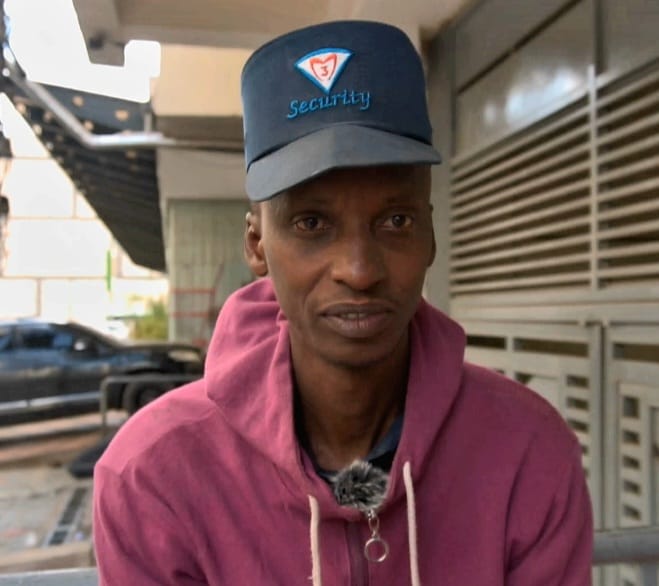 Security guard Egide Nitunga during an interview with The Eastleigh Voice on July 3, 2024. (Photo: Ahmed Shafat/EV)
Security guard Egide Nitunga during an interview with The Eastleigh Voice on July 3, 2024. (Photo: Ahmed Shafat/EV)
Simon Mogire, also a guard in Nairobi, complained about the lack of compassion people often show towards security issues.
"During the protest, we faced significant risks but the common concern from business owners was whether their shops were safe. Few cared to ask if we were safe," said Mogire.
He explained that the job is challenging and that many believe that in cases of looting, the guard must have been either negligent or irresponsible.
"Sometimes, we are accused of collaborating with looters even when it's clear it was out of our control. It's often hard to choose between protecting your life or property and the safety of your employer."
Some security personnel have died while protecting properties and people during such chaotic times.
 Nairobi Governor Johnson Sakaja and Fazul Mahamed, the director-general of the Private Security Regulatory Authority (PSRA), during the mass registration of private security personnel at Uhuru Park in Nairobi on March 30, 2024. (Photo: PSRA)
Nairobi Governor Johnson Sakaja and Fazul Mahamed, the director-general of the Private Security Regulatory Authority (PSRA), during the mass registration of private security personnel at Uhuru Park in Nairobi on March 30, 2024. (Photo: PSRA)
Push for reforms
The PSRA has been pushing for reforms in the sector to ensure guards are paid well and that it is a respected profession.
On March 30, during the mass registration of private security guards and bouncers which saw them issued with the Guard Force Number, Fazul criticised the Central Organization of Trade Unions (COTU) for failing to advocate for their rights.
"Security guards toil day and night to pay their monthly contributions to COTU yet the union does not fight for their interests. It has become another money-making scheme," he claimed.
He added, "I will not sit at a high table and earn millions every year while the people I am supposed to work for are suffering and languishing in poverty."
Fazul also warned private security companies against not paying guards the government-set minimum wage of Sh30,000, saying they risked deregistration.
He further highlighted the authority's efforts in setting standards for vetting and licensing security companies and digitising the database of all private security service providers.
Top Stories Today
